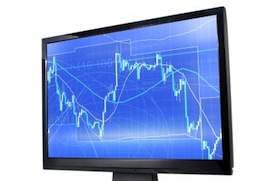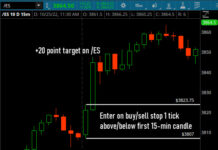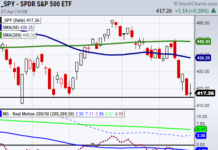 Being a trader is not just a numbers game, it is a way of thinking, analyzing and outsmarting all the other players in the financial markets. Professional traders, as opposed to recreational traders, make cold calculated decisions and are not afraid to make a trade if they perceive an opportunity that offers a good risk-reward setup.
Being a trader is not just a numbers game, it is a way of thinking, analyzing and outsmarting all the other players in the financial markets. Professional traders, as opposed to recreational traders, make cold calculated decisions and are not afraid to make a trade if they perceive an opportunity that offers a good risk-reward setup.
Let’s consider some personality traits of traders. First and foremost, one has to basically be addicted to trading and the intricacies of the market and short-term signals. It takes years of practice, real time trading and implementing methodologies to get beyond the basic level of trading.
As a futures day trader, I realize that you must have the ability and the curiosity to develop new methodologies for different market scenarios. Trading also takes a great level of patience, especially when it feels like you have not made as much progress as you’d like (i.e. at times when your account is not gaining). Additionally, you must love the challenge of problem solving, because trading presents plenty of setups, successes, and failures.
The smallest of details between buyers and sellers (and remembering these details) can help set your performance apart. No amount of charting, notes, etc. will give you an edge if you cannot recall these details when you are trading in real time.
Traders also must have the ability to determine what technical variables to use for each market scenario. Again, this is a game of details, so this can potentially play a role in determining your rate of success.
Finally, let’s discuss the life style and psychology of short-term traders.
There is a perception that traders only work during traditional trading hours of the markets. This couldn’t be further from the truth, especially with markets like Futures that are open and active 24/5 (with the exception of a number of minutes it is closed throughout the day). When traders do not trade and monitor setups, they are focused on research. I estimate that professional/serious traders need to dedicate 1-2 hours minimum each day to go through charts and build a trading plan for the next day. This requires an environment where your time is respected and without interruption. Note that trading leveraged products such as futures may incur a loss beyond your initial investment.
Luckily for many Futures traders, there are several futures exchanges worldwide that could potentially have enough liquidity to meet day trading hours regardless of where you are in the world.
Profitable traders have the ability to recognize how “losers” behave so they can cut losses quickly. When discipline isn’t respected, losses can mount. As well, we all need to recognize when euphoria or despair enter the market, so we can take advantage of the opportunities. Understanding market psychology and how the masses behave is on of the most essential assets a trader can possess.
But, above all, good traders are humble and realistic. Over the long haul, hard work may potentially pay off. As opposed to amateurs, the pros realize that “consistency” takes work and, although there will be setbacks, the methods that got them this far should carry them into the future of the world’s most competitive sport: day-trading.
Optimus Trading Disclosure: Futures and options trading involves substantial risk of loss and is not suitable for all investors. Our clients may lose more than their initial investment. Past performance is not indicative of future results.
Thanks for reading.
Follow Matthew on Twitter: @optimusfutures
Any opinions expressed herein are solely those of the author, and do not in any way represent the views or opinions of any other person or entity.








